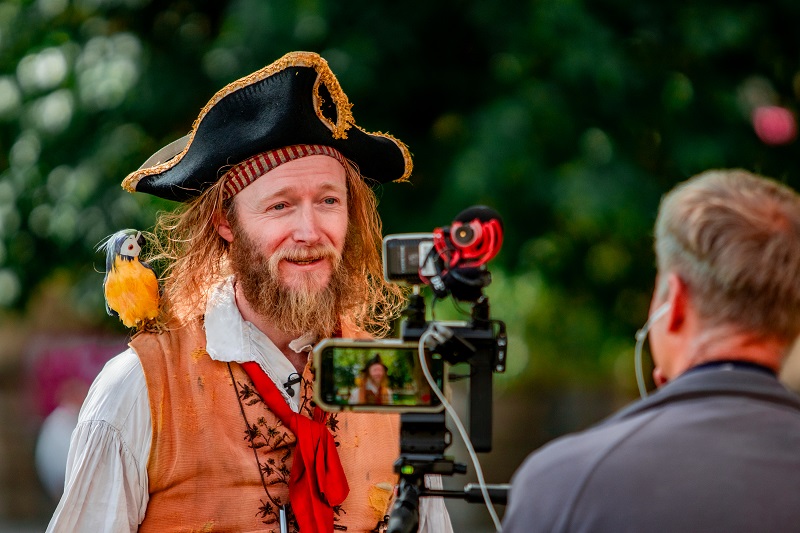If you’ve put in the hard work of organising a campaign, you’ll want journalists to cover it. Why? Media coverage will publicise your campaigning activity to a wider audience and show decision-makers that people care about this issue.

Finding press contacts
- Start by working out which publications will be interested in covering your story. This will most likely be local newspapers, websites, radio and TV.
- Search for contact email addresses. These can usually be found on the website of the outlet e.g. the ‘Contact us’ or ‘About us’ sections, or on social media profiles (‘Got a story?’).
- If there are a few journalists at the same publication to choose from, contact those whose job roles are most suited to covering your story. Local arts cuts campaigns are likely to interest local democracy, news and politics reporters.
Communicating with press
- Send an email to press with key information and be brief, as journalists receive many emails and are likely to ignore anything overly long. You can always follow up with more information once they reply expressing an interest.
- Explain who you are: that you live or work in the area represented by the campaign, what you do for a living, and specify which Equity branch you are a member of.
- Briefly (in up to a few sentences) say how this issue affects you and other people you know, and why you care about it. Human stories always make issues more interesting to press.
- If you are sending the same email to multiple journalists at different publications, make sure to send separate emails or bcc contacts to avoid starting a multi-person email chain that is sure to annoy.
- Likewise, journalists do not have time to respond to every email. It’s advisable to politely follow up an email that has had no response after at least a day or two has passed. But it’s best not to follow up on the same email again beyond this.
Inviting press to an event
- If you are putting on a rally, you should invite press to attend. The optimum time to invite them is about a week to several days in advance. But things can move fast in campaigns – it’s also worth sending out invites for impromptu rallies.
- You can access a template email here to see what sort of information to include.
- If a journalist confirms they will be attending a rally, give them your mobile phone number, or another Equity member’s, so you can be their contact on the day.
Handling press at an event
- Introduce yourself to press in attendance by letting them know you’re the Equity member who organised the rally – it’s helpful to meet journalists in-person if you want them to cover your campaigning in the future.
- They may ask for an interview with you, so it’s good to learn a few facts and figures to demonstrate how damaging the cuts are and the value of the arts. But don’t get too hung up on this – journalists are more interested in hearing you tell your personal story as a local resident and artist.
- Once you’ve introduced yourself, there’s no need to chaperone press at the rally – they will want to observe events and speak to people independently.
- Photographers and camera people may also be in attendance. TV outlets love capturing footage of chants, so turn up with a few in mind (“Stop the cuts! Save the arts!”) and be prepared to lead (or delegate to another Equity member)!
- Count approximately how many people turn up to the rally. This is often a number that press ask for.
- Take some photos and videos at the rally – these can be sent to press on request, as well as used for social media, petition photos, and other campaign communications.
Working with press may be a new experience, but don’t worry too much about the ‘right’ way to do things – journalists expect to work with you in your capacity as a local resident, not as a press officer. If you are respectful, give journalists key information, and are confident in the importance of your campaign to the lives of local artists and residents, you will have done a good job!


